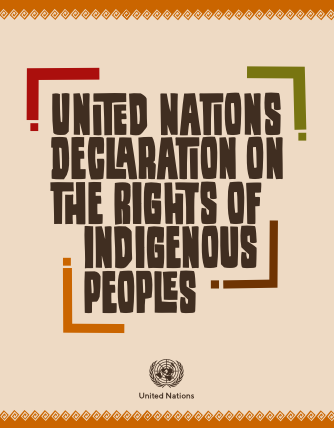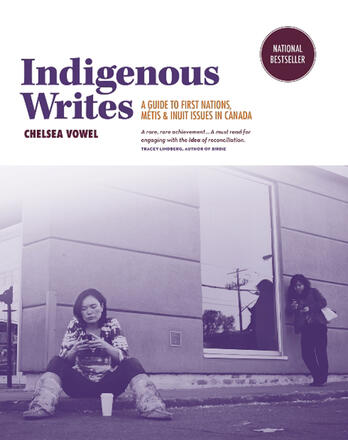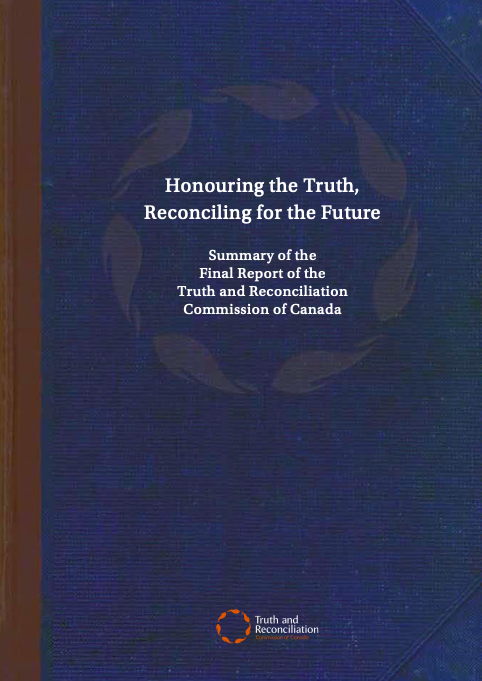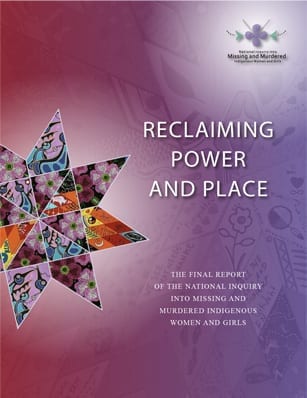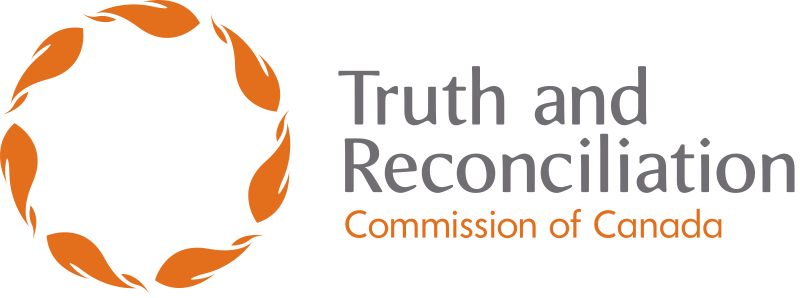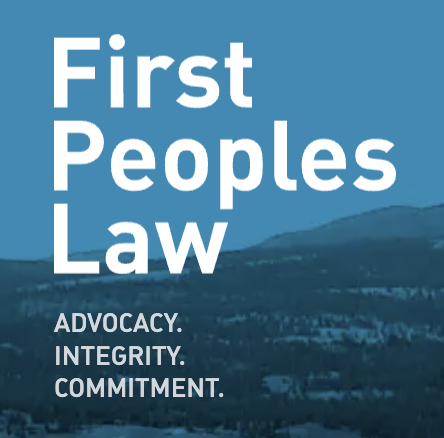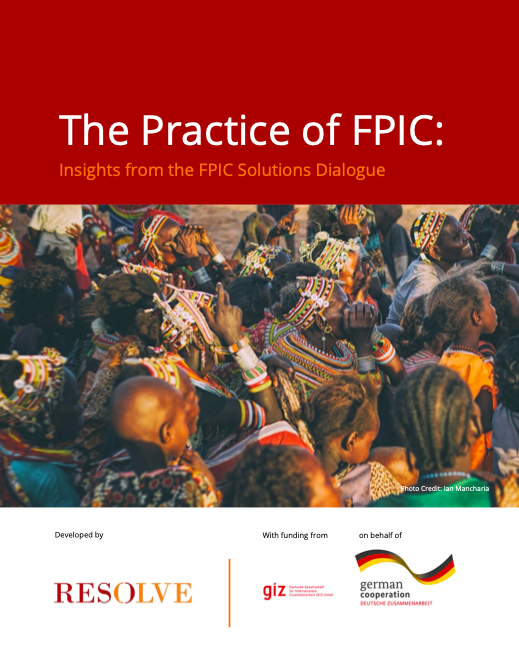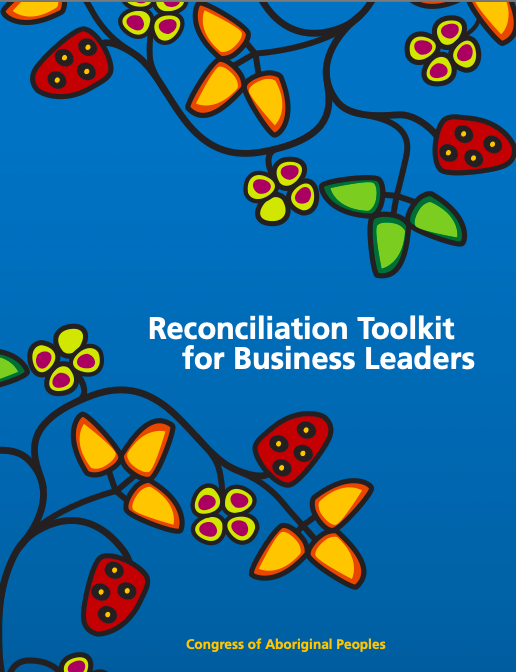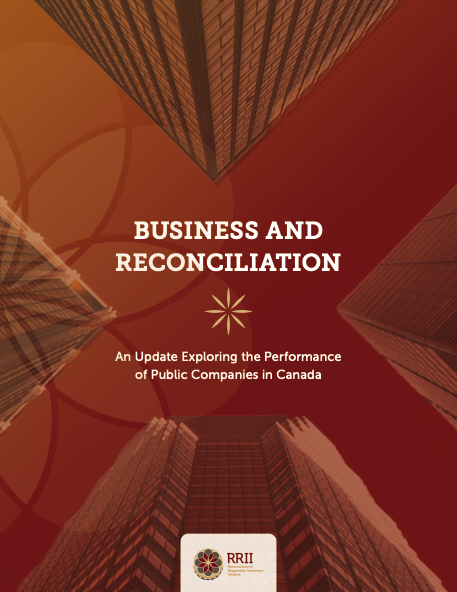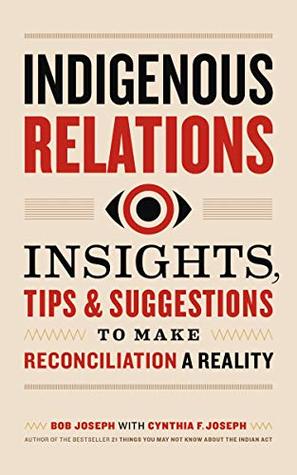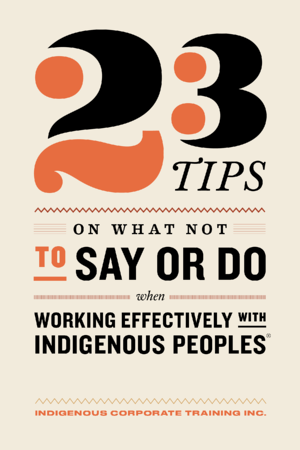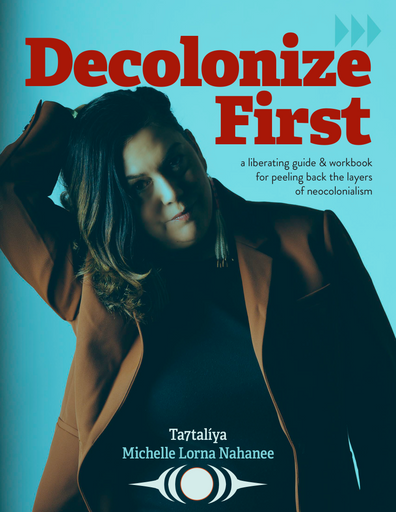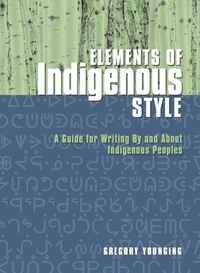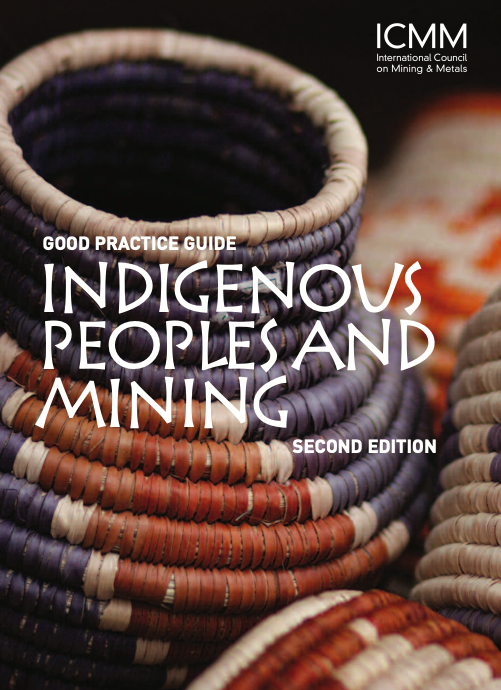Empowerment
Description
The company acknowledges the historic injustices committed against certain groups, as well as their legacy and continuing injustices and inequities. The company intentionally builds awareness among its leadership, employees, and peers of these histories and of the need to advance equity and transformation. The company supports the advancement of equality, anti-racism, and reconciliation, including economic reconciliation, and it makes and supports efforts to eliminate barriers that prevent this. In relevant contexts, the company acknowledges it has a role in advancing reconciliation between Indigenous Peoples, federal or national governments, and the non-Indigenous public, based on recognition of rights, respect, cooperation and partnership. The company has adopted the United Nations Declaration on the Rights of Indigenous Peoples as the framework for its approach to reconciliation with Indigenous Peoples.
Share this Subissue on:LinkedIn
Resources
Understanding Context
United Nations Declaration on the Rights of Indigenous Peoples (UNDRIP)
Adopted by the General Assembly in September 2007 by a majority of 144 states in favour, the United Nations Declaration on the Rights of Indigenous Peoples establishes a universal framework of minimum standards for the survival, dignity, and well-being of the Indigenous peoples of the world, and elaborates on existing human rights standards and fundamental freedoms. The declaration provides a trajectory for advancing lasting reconciliation with Indigenous peoples, and it should be used to inform any statements, policies, or practices related to Indigenous Peoples that your organisation is developing and implementing.
Indigenous Peoples
This article by Amnesty International offers an overview of Indigenous Peoples globally. It provides data on the world's Indigenous population and explains the rights of Indigenous Peoples, how Indigeneity can be identified, and the importance of protecting Indigenous cultures and knowledge. This brief introduction can be used by change agents as a resource to share with leaders and peers to help familiarise them with the issues affecting Indigenous Peoples.
Indigenous Navigator
The Indigenous Navigator is a framework and set of tools created for - and by - Indigenous Peoples to systematically monitor the level of recognition and implementation of their rights. They have created community-based monitoring tools that help to illustrate the realisation of Indigenous rights on the ground; a community data portal to make implementation gaps more visible; and tools, publications, tutorials, and other resources to engage and support Indigenous Peoples in monitoring the implementation of their rights. The Indigenous Navigator is an excellent resource both for change agents and leaders responsible for building relations with Indigenous communities and for those seeking comprehensive tools to help anchor their work in the provisions of the United Nations Declaration on the Rights of Indigenous Peoples (UNDRIP).
Indigenous Writes: A Guide to First Nations, Métis, and Inuit Issues in Canada
This is a great book for understanding Indigenous issues in Canada. This resource from Chelsea Vowel unpacks culture and identity; the legacy of state violence; the relationship between land, law, and treaties; and more.
Honouring the Truth, Reconciling for the Future: Summary of the Final Report of the Truth and Reconciliation Commission of Canada
The findings and recommendations of Truth and Reconciliation Commission of Canada’s Final Report are essential knowledge for those who live and do business in Canada, and especially for those whose business activities immediately affect Indigenous communities.
Drawing on six years of testimony from witnesses, this resource explains the history of Indigenous cultural genocide in Canada, including the legacy of the residential school system and of institutional discrimination and assimilation; explores the challenges of reconciliation against enduring colonial politics and economics; and issues 94 calls to action that your organisation can directly or indirectly advance.
Reclaiming Power and Place: The Final Report of the National Inquiry into Missing and Murdered Indigenous Women and Girls
The National Inquiry’s Final Report is a landmark document that reveals that persistent and deliberate human and Indigenous rights violations and abuses are the root cause behind violence against Indigenous women, girls, and 2SLGBTQQIA people in Canada. This report is comprised of truths and testimonies from family members, survivors of violence, experts, and Knowledge Keepers, and culminates in 231 individual Calls for Justice directed at governments, institutions, social service providers, industries, and all Canadians.
This document will help to familiarise you with Indigenous people's context of multigenerational and intergenerational trauma and marginalisation when engaging with, investing in, and supporting their communities and businesses.
What is Reconciliation
This short video from Murray Sinclair - the chair of the Truth & Reconciliation Commission of Canada - is a heartfelt and accessible primer that will help you to understand the context of the residential school system on survivors and their descendants, and provides thoughtful questions that can help guide your company's approach to advancing its relationship with Indigenous peoples.
Aboriginal Rights as a Tool of Colonialism
This essay from First Peoples Law can help you understand the formation of Indigenous rights in Canada and the problems within that rights framework. The author outlines how Canadian courts have created Indigenous rights that are secondary to non-Indigenous rights, and how they have maintained their limited position overtime. He explains how the Supreme Court of Canada's interpretation of rights fits into a wider project of oppression through creating and recreating 'the other,' and he explains how decolonisation cannot truly begin without truth-telling. This resource will be useful to anyone whose organisation is working with Indigenous peoples in Canada.
Guidance for Advancing Reconciliation
What is Free, Prior and Informed Consent (FPIC)?
This short explainer from the Institute for Human Rights and Business can help you to understand free, prior, and informed consent (or FPIC). It explains the origin of the term and concept, the elements of FPIC, the role of the private sector, and practices that businesses should avoid when obtaining FPIC.
Indigenous Rights and Financial Institutions: Free, Prior and Informed Consent, Just Transition and Emerging Practice
This guide produced by Shift can help you better understand and respect Indigenous Peoples rights, specifically when financing clients with projects or value chains connected to Indigenous territories. The guide outlines how Indigenous groups are defined and why Indigenous rights are important to uphold from a financial institution’s perspective. It explains good practice related to free, prior, and informed consent (FPIC), and examines key challenges for the finance sector, such as the lack of information on respecting Indigenous rights and how to navigate power imbalances. The annex section also features summaries of additional resources, including human rights standards and relevant tools for business.
The Practice of FPIC: Insights from the FPIC Solutions Dialogue
Major projects often have major social and economic impacts, and it is important that companies and communities create an open and equitable dialogue that empowers communities to share their concerns, understand the potential impacts, and appropriately benefit from development. This guide from RESOLVE was created to help communities and companies arrive at a shared roadmap for these project decisions related to free, prior, and informed consent (FPIC). The guide employs a set of Decision Making Milestones that organise dialogue in a practical, intuitive, and iterative way, from pre-feasibility and site exploration to closure processes. This guide can also help readers to identify where gaps in the FPIC process can emerge, and it provides insights, prompts, and resources to benefit the needs of stakeholders and rights-holders.
Getting FPIC right: how voluntary standards can go further
This report from ISEAL, in collaboration with GIZ and Evidensia, can help you understand how voluntary sustainability standards can better support the implementation of free, prior, and informed consent (FPIC). Based on a systematic literature review, this report provides an overview of the emergence of FPIC as a norm and a practice; how it is interpreted; its effectiveness; and the key challenges to its implementation. It also provides recommendations for how voluntary sustainability standards can enable effective FPIC implementation. These insights will be most useful to community relations and sustainability teams, especially in the mining sector.
Reconciliation Toolkit for Business Leaders
This resource from the Congress of Aboriginal Peoples was created to help you progress toward reconciliation and collaboration with Indigenous Peoples. The toolkit is structured around four specific areas of reconciliation: Reflection and Learning, Leading Transformation, Inclusive Workplaces, and Outreach and Engagement. This toolkit was designed to be flexible; the principles and lessons can be applied across the spectrum of reconciliation and relations-building with Indigenous Peoples.
Business Reconciliation in Canada Guidebook
This guidebook from the Canadian Council for Aboriginal Business was created to help you build respectful and sustainable relationships with both Indigenous businesses and communities. The first half of the guide introduces the historical and cultural context of business reconciliation, and the latter half outlines practical steps for working effectively with Indigenous Peoples based on a 3-step process of educate, reflect, and act. This resource will be most useful to individuals and teams engaging with Indigenous businesses and communities, such as procurement, business development, community relations, and human resource professionals.
Business and Reconciliation: An Update Exploring the Performance of Public Companies in Canada
This report from the Reconciliation & Responsible Investment Initiative uses a broad set of indicators to highlight corporate Canada's progress in advancing reconciliation. The indicators address five central themes: recognition of Indigenous peoples in diversity policies and corporate leadership; employment and advancement of Indigenous employees; employment-related training and education; commitment to upholding Indigenous rights; and community investment and support. With this criteria the report provides an analysis of how 78 Canadian companies across a range of industries are equitably engaging with Indigenous Peoples, and includes key findings in relation to hiring, training, referencing Indigenous Peoples in policies, and setting formal commitments to uphold and advance Indigenous rights. This is an important resource for understanding the work that businesses in Canada are undertaking to meet the Truth and Reconciliation Commission of Canada's Calls to Action, and may help you to understand some of the approaches that are being adopted to advance reconciliation.
Indigenous Relations: Insights, Tips & Suggestions to Make Reconciliation a Reality
This book from Bob Joseph, founder and President of Indigenous Corporate Training Inc., is a good starting point for understanding preferred Indigenous terms; common myths and stereotypes about Indigenous Peoples; Indigenous worldviews and barriers to employment; Aboriginal Rights and Title; the differences between types of Indigenous leadership; and the effects of UNDRIP on the Rights of Indigenous Peoples in Canada. The book also introduces a training model (RESPECT) that will help you to build effective relationships with Indigenous Peoples. This resource will be of particular benefit to leaders and communications professionals working for organisations with operations in North America.
23 Tips on What not to Say or do When Working Effectively with Indigenous Peoples
This concise guide provides a handy list of practical tips to incorporate in meetings with Indigenous Peoples. This is a good primer for leaders and change agents who are new to Indigenous relations in business, and particularly within Canada.
Decolonize First: a liberating guide & workbook for peeling back the layers of neocolonialism
This workbook by Ta7talíya Michelle Nahanee features processes, prompts, and links to resources that can help to guide and shift your framings and actions away from colonial defaults. It addresses topics such as colonial narratives, helping and harm, intention and impact, and reconciliation, and includes an accessible social change framework and a decolonizing process map. This book is a good starting point for critically examining your company's maturity in its decolonizing journey and for creating the space necessary for self-reflection and conscientious change.
Elements of Indigenous Style: A Guide for Writing by and about Indigenous Peoples
Gregory Younging's book provides comprehensive advice on culturally appropriate publishing practices for Indigenous content, including how to respect Indigenous oral traditions and knowledge, and when to seek the advice of Elders. The book includes succinct stype principles, identifies terminology to avoid, and provides case studies that demonstrate best practices. This resource will help you to explore the cultural rights of Indigenous Peoples and build a better undersanding of how the oppressive relationship between settler communities and Indigenous Peoples is reflected in language.
Good Practice Guide: Indigenous Peoples and Mining
This guide from the International Council on Mining & Metals was created to help business leaders and change agents ensure mutually beneficial outcomes through better understanding of Indigenous Peoples, their rights, and how they connect with mining activities. The guide is broken down into four parts: good practice guidance, which explores engagement and Indigenous participation, managing impacts, agreements, and dealing with grievances; a toolkit; case studies; and additional information.
Although this guide was created for the mining & materials sector, it is a worthwhile and relevant read for leaders and sustainability professionals in other industries.
A guide to decolonize language in conservation
This guide from Survival International can help you understand what it means to decolonise the language you use around conservation and climate action. It defines basic concepts demonstrating the colonial legacy that remains in the conservation world; examines common conservation related terms and explains how they continue to perpetuate prejudiced beliefs; and provides a list of concepts that are often used in misleading ways when not clearly defined. This resource will be most useful to communications, marketing, and sustainability teams, and anyone else communicating about environmental issues.
How to Build Good Relations with Indigenous Peoples: An Interview Series (Part 1)
In our conversations with companies around the world, we have noticed a common refrain: building good relations with Indigenous Peoples is essential, but we aren’t sure how or where to start. This is the first entry in a three-part series that aims to help bridge this gap. In this instalment, we unpack the importance of understanding Indigenous worldviews, taking the time to understand the needs of their Peoples, and acting with deference and sincerity towards building positive and long-lasting relationships in order to advance reconciliation.
How to Build Good Relations with Indigenous Peoples: An Interview Series (Part 2)
In our conversations with companies around the world, we have noticed a common refrain: building good relations with Indigenous Peoples is essential, but we aren’t sure how or where to start. This is the second entry in a three-part series that aims to help bridge this gap. In this instalment, we discuss some of the specific actions that your company can take towards embedding an understanding of Indigenous worldviews into how you operate and your approach to building capacity with Indigenous communities.
How to Build Good Relations with Indigenous Peoples: An Interview Series (Part 3)
In our conversations with companies around the world, we have heard a common need: How do we build good relations with Indigenous Peoples? This third and final post in our series aims to help bridge this gap. We partnered with Chief Leanne Joe to identify resources that help you understand Indigenous truth-telling, systemic discrimination, and highlight essential business practices that can help you build long-lasting relationships founded on trust and respect.
Towards Braiding
This thoughtful guide can help you understand how to move beyond 'business as usual' and undertake the deep work of decolonising your organisation. It starts by telling a common story of how decolonising efforts often fail, and then centers on how to take a new approach to disrupt this cycle. It outlines the differences between western and Indigenous perspectives and the importance of coming to a shared understanding and describes the emergent practice of “braiding” these two perspectives as a means to open up new possibilities for engagement. It provides guiding questions and red flags to consider when seeking out Indigenous perspectives; provides guidance for times when the process goes off track; and considers the risks of inappropriate and appropriative engagement. It also offers recommendations on how to sustain generative engagement. This resource will be most useful to anyone working with or hiring Indigenous Peoples, such as community relations and HR professionals.
Other Resources
Women's Empowerment Principles
Established by the UN Global Compact and UN Women, The Women's Empowerment Principles (WEPs) serve as guidelines that will help your leaders, HR professionals, and change agents to promote gender equality and empowerment in the workplace. Adopting these principles involves six main stages: Consider, Sign, Activate, Engage, Sustain, and Report. Towards helping you understand and progress through these stages, the WEPs has created a comprehensive brochure that features tools, examples, insights, and other resources.
Linking Indigenous Communities with Regional Development in Canada
This study from the OECD can help you to better understand and support priority issues that maximise the potential of Indigenous economies in Canada. The report examines how public policy and public investments can be better leveraged to support Indigenous economic development, and focuses on four key areas of recommendations. These include improving the quality of data about Indigenous businesses and entrepreneurship and including these communities in the governance of said data; protecting and advancing land and water rights; enabling Indigenous entrepreneurship and community economic development; and improving governance and policies for place-based Indigenous economic development.
Although written with the public sector in mind, these recommendations highlight opportunities that sustainability, legal, community relations, and investment professionals can support to further the development and growth of Indigenous economies.
Indigenous Peoples: Language Guidelines
This concise guide from the University of British Columbia can help you to navigate the terminology associated with Indigenous Peoples and to advance your commitment to inclusive language. It explains why terminology matters, and includes specific and common examples. It also explains the importance of acknowledgements and recognition, and demonstrates effective and respectful approaches. This resource would be particularly helpful for communications professionals.
LandMark: Global Platform of Indigenous & Community Lands
This interactive platform can help you to close internal information gaps on Indigenous Peoples' and local communities' land rights. It provides precise, in-depth maps, data, and other information on lands that are collectively held and used, including legal status and key threats. It also includes analysis tools that calculate factors such as forest cover loss and carbon stock.
